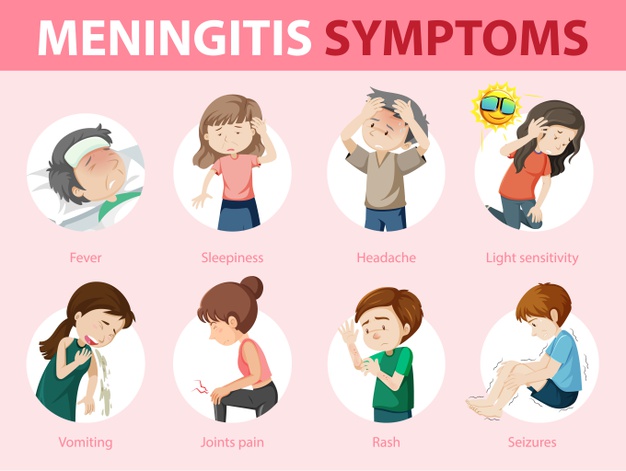Meningitis is an inflammation (swelling) of the protective membranes covering the brain and spinal cord. A bacterial or viral infection of the fluid surrounding the brain and spinal cord usually causes the swelling. However, injuries, cancer, certain drugs, and other types of infections also can cause meningitis. It is important to know the specific cause of meningitis because the treatment differs depending on the cause.
Bacterial Meningitis
Meningitis caused by bacteria can be deadly and requires immediate medical attention. Vaccines are available to help protect against some kinds of bacterial meningitis.</di
Viral Meningitis
Meningitis caused by viruses is serious but often is less severe than bacterial meningitis. People with normal immune systems who get viral meningitis usually get better on their own. There are vaccines to prevent some kinds of viral meningitis.
Fungal Meningitis
Meningitis caused by fungi is rare, but people can get it by inhaling fungal spores from the environment. People with certain medical conditions, like diabetes, cancer, or HIV, are at higher risk of fungal meningitis.
Parasitic Meningitis
Various parasites can cause meningitis or can affect the brain or nervous system in other ways. Overall, parasitic meningitis is much less common than viral and bacterial meningitis.
Amebic Meningitis
Primary amebic meningoencephalitis (PAM) is a rare and devastating infection of the brain caused by Naegleria fowleri. Naegleria fowleri is a free-living microscopic ameba that lives in warm water and soil.
Sometimes cancers, systemic lupus erythematosus (lupus), certain drugs, head injury, and brain surgery can cause meningitis.

